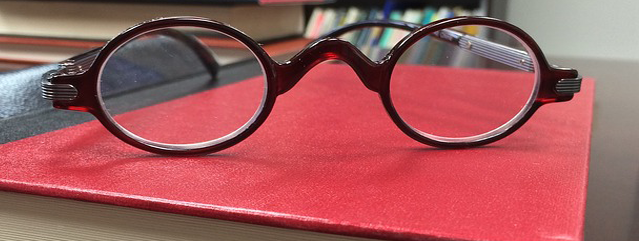Post-Traumatic Vision Syndrome

Did you know that at least sixty areas of the brain are involved with the processing of visual information, and that seventy percent of all sensory information is visual? I didn’t know this. I learned that fiber of trivia from Amy Pruszenski, a doctor of optometry, during her talk about post-traumatic vision syndrome (PTVS) at the Brain Injury Association of Vermont annual conference this past October. Simply put, PTVS is a disruption in flow within the complex network of nerves, tracts, and subsystems of the brain. Such disruption prevents the processing of visual data. This is not an uncommon occurrence in people who have sustained a traumatic brain injury (TBI). So, if you’ve sustained a TBI, including a concussion, and you’ve been wondering whether or not you have PTVS, keep reading.
Some common problems associated with PTVS include blurred vision, sensitivity to light, reading difficulties (words may appear to move on the page), poor comprehension, difficulty concentrating, poor memory, double vision, headaches when straining eyes, eye pain, squinting, closing one eye, poor depth and spatial judgment, and strabismus, or misalignment of the eyes. The list is endless.
But there’s no reason to walk around fearful that you’re about to fall over because you’re visual processing system is out of wack – you swear that every time you go out for a walk, the sidewalk curb shifts just as you are about to step off it to cross the street. Fortunately, there are treatments and behavioral changes that can help improve the flow and processing of information between the eyes and brain. Corrective lenses can help with blurry vision and magnification of objects, and can improve both close-up and distance vision. Prism glasses have a ground prism in or on the lens, which changes how the light enters the eye. These might help alleviate double vision and improve peripheral vision. Some optometrists recommend patching one eye to help with double vision. Doing so prevents information that causes double vision from entering the brain. After testing a patch during Amy’s talk, and having had to wear one as a kid to strengthen my “lazy eye,” I can tell you that this is not the most appealing option, especially if you are prone to claustrophobia.
Some behavioral changes Amy suggested, which apply to people without a TBI too, sounded tempting. Of course, they require discipline and training. Every twenty minutes, step twenty feet away from your computer, and focus on something else for at least twenty seconds. (I must do as Amy urged and set a timer to remind myself to turn away from the screen – I’ve been staring at it for more than an hour now.) Also, try what Amy calls a “Palm Break.” Block your eyes with your palms to block out all visual stimulation. But it’s not only the length of time engaged in an activity that affects visual processing; the type of activity affects it too. For instance, computer work is more strenuous on the eyes and brain than, say, washing the dishes.
Here are a few more tips to help avoid visual overload: remove clutter in your home and at work. (You don’t want to be around me when my home is a mess.) Prioritize activities, and don’t set yourself up to do too much in a day. (I still think I’m the super-woman I was before my TBI and list five or six brain-heavy tasks in my date book each day.) And shut down your computer, ipad, iphone, iwhatever, even the television, two to three hours before bedtime. (I know, this is a tough one, especially if you’re like me and must watch just one more episode of Call the Midwife before you click the off button on the remote.) The short wavelengths emitted from these kinds of devices suppress melatonin, a hormone that controls wake and sleep cycles. The suppression of melatonin not only interferes with sleep, it has also been linked to all kinds of bodily dysfunctions: cancer, diabetes, heart disease, obesity.
Rather than leaving you bloated with worry about how to fit in yet another self-care activity into your busy day, I’ll end with a shout of encouragement from Amy: “Celebrate accomplishments!”

Great writing it is such a cool and nice idea thanks for sharing your post. I like your post very much. Thanks for your post.
Thanks for reading it, Line. Glad you enjoyed it! And hope it helps.
Thanks for sharing this nice article. I read it completely and get some interesting knowledge from this. I again thanks for sharing such a nice blog.
I’m glad it helped! Forge ahead!
Thanks for sharing this nice article. and I wish to visit again on your blog. keep sharing with your work.
Thanks for reading the post, and, yes, I will keep sharing! Best!
Thanks for sharing this nice article. and I wish to visit again on your blog. keep sharing with your work.
Great writing it is such a cool and nice idea thanks for sharing your post. I like your post very much. Thanks for your post.